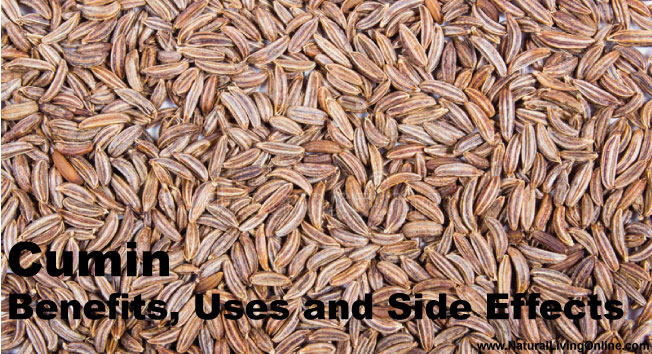Cumin (Cuminum cyminum) is a spice made from the seeds of a plant in the parsley family. It is native to the Middle East and has been used in cooking for thousands of years. Cumin essential oil is extracted from the seeds of the cumin plant and has a strong, earthy aroma.
What is Cumin?
Cumin is a spice made from the seeds of the Cuminum cyminum plant, which is part of the parsley family. It is native to the Middle East and has been used in cooking for thousands of years. The cumin plant grows to about 30–50 cm (12–20 in) tall and produces small, white or pale pink flowers. The seeds are harvested and then ground into a powder that is used as a spice in many cuisines.
Different types of Cumin:
There are three main types of cumin.
1. Black cumin (Bunium persicum)
2. White cumin (Cuminum cyminum)
3. Indian cumin (Bunium bulbocastanum)
Black cumin is the most common type of cumin in the Middle East and is used in Indian, Pakistani, and Bangladeshi cuisine. White cumin is the most common type of cumin in Europe and is used in Spanish, Portuguese, and North African cuisine. Indian cumin is less common and is used in Indian cuisine.
How Cumin Essential Oil is made?
Cumin essential oil is extracted from the seeds of the cumin plant. The seeds are ground into a powder and then distilled to produce the oil. The oil has a strong, earthy aroma and is dark yellow in color.
What is the botanical name of Cumin?
The botanical name of cumin is Cuminum cyminum.
The chemical constituents of Cumin essential oil (Cumin Essential Oil Monograph):
Z-3-hexenyl acetate (up to 60%)
Cumin aldehyde (up to 18.5%)
Bisabolene epoxide (up to 5.5%)
gamma-Terpinene (up to 4.5%)
What are the benefits Cumin Essential Oil?
Cumin essential oil has a number of potential health benefits, including:
1. Reducing inflammation
2. Supporting digestive health
3. Boosting immunity
4. Reducing anxiety and stress
5. Alleviating pain
6. Enhancing cognitive function
7. Helping to quit smoking
8. Reducing the risk of cancer
What are the side effects of Citronella essential oil?
Cumin essential oil is generally safe for most people. However, some people may experience skin irritation or an allergic reaction. If you experience any side effects, stop using the oil and consult your doctor.
Cumin essential oil is a potent oil with a number of potential health benefits. However, it should be used with caution due to its potent nature. If you are pregnant or breastfeeding, talk to your doctor before using cumin essential oil.
Possible drug interactions:
Cumin essential oil may interact with certain medications, such as:
1. Blood thinners
2. Diabetes medication
3. Lithium
4. Sedatives
5. Blood pressure medication
As always, speak with your doctor before using cumin essential oil if you are taking any medications.
What are ways to use Cumin Essential Oil?
Cumin essential oil can be used in a diffuser or added to a carrier oil and applied to the skin. It can also be added to food and beverages.
Cumin essential oil should not be used by:
Pregnant or breastfeeding women
Children under the age of 12
People with a history of allergies or sensitivities
How can I use Cumin Essential Oil internally?
Cumin essential oil can be used internally but like any other essential oil should not be used internally without the permission and supervision of a doctor.
How can I use Cumin Essential Oil topically?
Cumin essential oil can be used topically by diluting it with a carrier oil and applying it to the skin. It should not be used on broken or damaged skin.
How Cumin Essential Oil helps in aromatherapy?
Cumin essential oil can be used in aromatherapy to promote relaxation and stress relief.
Great Essential Oil diffuser blends for aromatherapy with Cumin Essential Oil:
Stress relief blend: 3 drops lavender, 2 drops cumin, 1 drop geranium
Calming blend: 3 drops chamomile, 2 drops cumin, 1 drop bergamot
Energizing blend: 3 drops grapefruit, 2 drops rosemary, 1 drop cumin
Relaxing blend: 3 drops ylang ylang, 2 drops sandalwood, 1 drop cumin
Uplifting blend: 3 drops lemon, 2 drops rosemary, 1 drop cumin
Focus blend: 3 drops rosemary, 2 drops peppermint, 1 drop cumin
Immunity boost blend: 3 drops eucalyptus, 2 drops rosemary, 1 drop cumin
How can I use Cumin Essential Oil in bath?
Cumin essential oil can be used in the bath by adding it to a carrier oil and dispersing it in the water.
Historical use of Cumin as a herbal medicine:
Cumin has been used medicinally for centuries. In traditional Chinese medicine, cumin is used to treat digestive issues, respiratory problems and skin conditions. In Ayurvedic medicine, cumin is used to treat digestive issues, colds and flu.
What blends well with Cumin Essential Oil?
Cumin essential oil blends well with other earthy, spicy, and citrus essential oils, such as:
1. Bergamot
2. Clove
3. Cypress
4. Frankincense
5. Ginger
6. Lemon
7. Myrrh
8. Orange
9. Patchouli
10. Peppermint
11. Rosemary
12. Sandalwood
13. Ylang-ylang
What does not blend well with Cumin Essential Oil?
Cumin essential oil does not blend well with floral or fruity essential oils.
What does Cumin Essential Oil smell like?
Cumin essential oil has a strong, earthy smell with hints of citrus.
Can I make Cumin Essential Oil at home?
Cumin essential oil can be made at home by steam distilling cumin seeds.
What is the shelf life of Cumin Essential Oil?
Cumin essential oil has a shelf life of 2-3 years.
Is Cumin Essential Oil safe for kids?
Cumin essential oil is not recommended for children under the age of 12.
Can Cumin Essential Oil be used on pets?
Cumin essential oil is not recommended for use on pets.
DIY recipes using Cumin Essential Oil:
Muscle Relax Massage Oil: In a small bowl, combine 1 tablespoon of carrier oil with 3 drops of cumin essential oil and 2 drops of peppermint essential oil. Massage the mixture into sore muscles. Store in a glass jar and use as needed. Avoid using on broken or damaged skin.
Calming Diffuser Blend: In a diffuser, combine 3 drops of lavender essential oil, 2 drops of cumin essential oil, and 1 drop of geranium essential oil. Diffuse as needed to promote relaxation and stress relief.
Energizing Diffuser Blend: In a diffuser, combine 3 drops of grapefruit essential oil, 2 drops of rosemary essential oil, and 1 drop of cumin essential oil. Diffuse as needed to increase energy and focus.
Uplifting Diffuser Blend: In a diffuser, combine 3 drops of lemon essential oil, 2 drops of rosemary essential oil, and 1 drop of cumin essential oil. Diffuse as needed for an uplifting and refreshing aroma.
Immunity Boost Diffuser Blend: In a diffuser, combine 3 drops of eucalyptus essential oil, 2 drops of rosemary essential oil, and 1 drop of cumin essential oil. Diffuse as needed to boost immunity and fight off illness.
This website does not provide medical advice.
All information provided on this website, and on associated social media networks, including but not limited to texts, images, and numbers are for general information purpose only. It is not intended as medical advice and it does not include all possible precautions, side effects, or interactions that may occur. Neither NaturalLivingOnline.com nor its author/founder take responsibility for how you use this information. Statements contained on NaturalLivingOnline.com have not been evaluated by the FDA. You should conduct thorough research via multiple sources and consult your physician or qualified doctor before using any essential oil or herbal remedy. Information on NaturalLivingOnline.com must not be relied upon for medical, legal, financial or other decisions.













